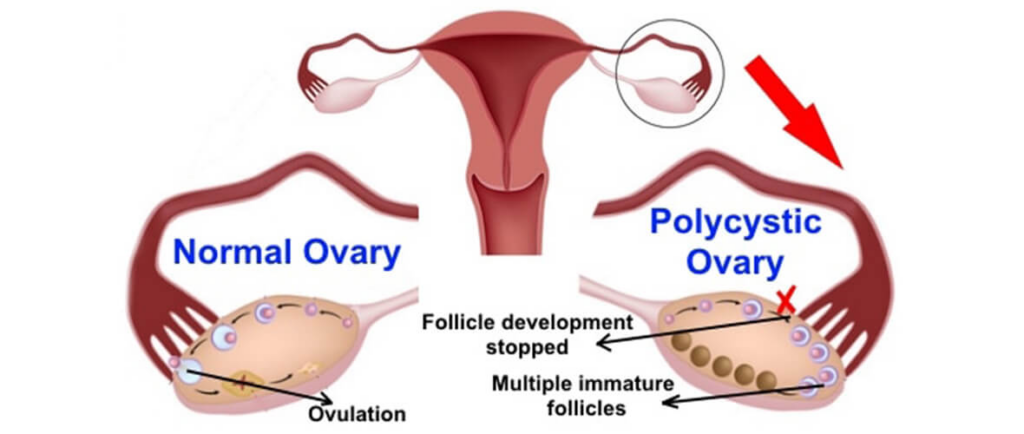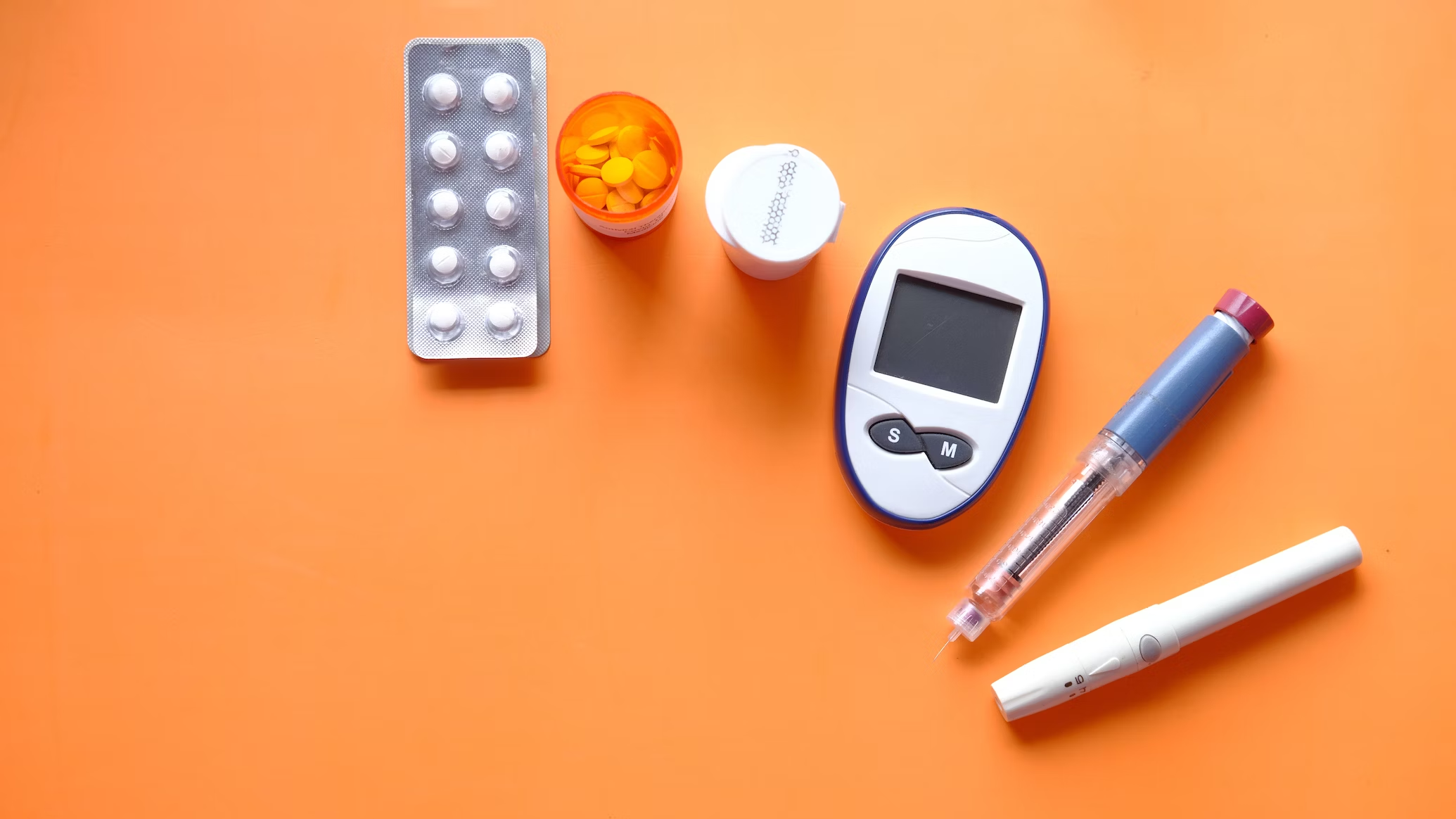“Pleasure, intimacy, connection – these are what we aspire to in a fulfilling sexual relationship. Yet, for many, this journey is marred by an uninvited and often unspoken guest: pain during sex.“ This comprehensive guide is crafted to illuminate this sensitive topic, offering in-depth insights, expert advice, and a compassionate approach.
The aim is to empower you with knowledge and tools to navigate this complex issue, transforming challenges into opportunities for deeper connection and understanding in your intimate relationships.
Table of Contents
- Understanding Pain During Sex
- Gender-Specific Concerns
- Post-Childbirth Sexual Discomfort
- Medical Conditions and Pain
- Seeking Professional Advice
- When to Seek Emergency Medical Attention
- Emotional and Psychological Aspects
- Effective Remedies for Pain During Sex
- Coping Strategies for Emotional Challenges
- Final Thoughts on Sexual Pain
- Want More Useful Articles?
Understanding Pain During Sex

Sexual discomfort, akin to an unwelcome disruption in the symphony of intimacy, can significantly impact the quality of a sexual relationship. This issue is multifaceted, intertwining physical, emotional, and psychological elements, each playing a pivotal role in the overall experience of intimacy.
Physical and Emotional Causes
- Physical Factors: These encompass a range of issues from inadequate lubrication, which can cause friction and irritation, to more complex medical conditions. For instance, vaginismus, a condition where vaginal muscles involuntarily contract, makes penetration painful or impossible.
- Psychological and Emotional Elements: The role of the mind in sexual health cannot be overstated. Psychological factors such as anxiety, past trauma, or stress in a relationship can manifest physically, leading to or exacerbating pain during sex. As one expert insightfully observes, “The realms of the mind and body are deeply intertwined in the tapestry of sexual health.”
Gender-Specific Concerns

Women and men experience pain during sex differently due to distinct anatomical and hormonal differences. For women, issues like hormonal changes post-childbirth or conditions like endometriosis play a significant role, whereas men might face challenges related to prostate health or psychological factors like performance anxiety. Let’s take a closer look.
Pain During Sex in Women
For many women, experiencing pain during sex is a nuanced issue, deeply rooted in the complex interplay of physical and hormonal changes, as well as psychological factors. Understanding these elements is key to finding effective remedies.
| Common Causes | Brief Explanation | Remedies |
|---|---|---|
| Vaginal Dryness | Lack of adequate lubrication, often due to hormonal changes or insufficient arousal. | Lubricants, Hormonal Therapy, Increased Foreplay |
| Endometriosis | Growth of uterine tissue outside the uterus, causing pain and inflammation. | Pain Medication, Hormonal Treatments, Surgery |
| Pelvic Inflammatory Disease (PID) | Infection of the reproductive organs, leading to pelvic pain. | Antibiotics, Pain Management Strategies |
| Vaginismus | Involuntary contraction of vaginal muscles, making penetration painful. | Physical Therapy, Counseling, Relaxation Techniques |
| Vulvodynia | Chronic pain around the vaginal opening, cause often unknown. | Medication, Biofeedback, Physical Therapy |
| Fibroids | Noncancerous growths in the uterus, causing pressure and discomfort. | Medication, Minimally Invasive Procedures, Surgery |
| Interstitial Cystitis | Chronic bladder condition leading to pelvic pain and discomfort. | Dietary Changes, Bladder Instillations, Oral Medications |
| Hormonal Imbalances | Changes in hormone levels affecting vaginal tissue and lubrication. | Hormone Replacement Therapy, Lifestyle Adjustments |
Pain During Sex in Men

The experience of pain during sex is not exclusive to women; men also confront this issue, albeit often less discussed. For men, the causes can range from physical conditions like erectile dysfunction or prostate problems to psychological stressors such as performance anxiety or relationship issues.
| Common Causes | Brief Explanation | Remedies |
|---|---|---|
| Erectile Dysfunction (ED) | Difficulty in achieving or maintaining an erection, often due to physical or psychological factors. | Medications (e.g., PDE5 inhibitors), Therapy, Lifestyle Changes |
| Prostatitis | Inflammation or infection of the prostate gland, causing pain and discomfort. | Antibiotics, Anti-inflammatory Medications, Prostate Massage |
| Peyronie’s Disease | Development of fibrous scar tissue inside the penis, causing curved, painful erections. | Medication, Physical Therapy, Surgery in Severe Cases |
| Penile Fracture | Rare but severe injury to the penis involving a tear in the tunica albuginea. | Emergency Medical Attention, Surgical Repair |
| Phimosis | Tightness of the foreskin that cannot be pulled back over the head of the penis. | Topical Steroids, Stretching Exercises, Circumcision if Severe |
| Chronic Pelvic Pain Syndrome | Ongoing pain in the pelvic region, cause often unknown. | Physical Therapy, Pain Management Strategies, Psychological Support |
| Urinary Tract Infections (UTIs) | Infections in the urinary tract causing pain and burning sensations. | Antibiotics, Increased Fluid Intake, Cranberry Supplements |
| Psychological Factors | Issues such as performance anxiety, stress, or relationship problems. | Counseling, Therapy, Open Communication with Partner |
Post-Childbirth Sexual Discomfort

The post-childbirth period brings a myriad of changes in a woman’s body, influencing her sexual health. Factors like hormonal shifts, physical healing from childbirth, and psychological adjustments such as postpartum depression significantly impact her experience of intimacy.
Physical Changes
Post-childbirth, the body undergoes several transformations that can impact sexual comfort:
- Vaginal Changes and Healing: Post-delivery, the vagina and surrounding tissues, which may have stretched or torn during childbirth, need time to heal. This process can lead to discomfort during sex in the initial postpartum period.
- Hormonal Fluctuations: Hormonal shifts postpartum, especially reduced estrogen levels, can result in vaginal dryness, making intercourse painful.
- C-Section Recovery: Women who undergo cesarean sections also face challenges. The healing of surgical wounds can create discomfort, impacting sexual activity.
“While pain during sex after childbirth might feel isolating, it’s a shared chapter in many mothers’ stories. With patience and the right support, this phase, too, shall pass, opening the door to renewed intimacy and joy.”
Emotional Adjustments
- Postpartum Depression and Anxiety: These common emotional responses can diminish sexual desire and affect overall intimacy.
- Body Image Concerns: Changes in body shape and weight post-childhood can influence a woman’s self-esteem and body image, impacting her sexual self-confidence.
- Impact on Intimacy and Communication: Navigating the new dynamics of parenthood can strain a couple’s emotional and sexual relationship.
Practical Tips
- Gradual Reintroduction to Sexual Activity: Take time to heal and communicate with your partner about your readiness to resume sexual activity.
- Open Communication with a Partner: Discuss any fears, discomforts, or needs openly with your partner.
- Seeking Professional Guidance and Support: If discomfort persists, consulting healthcare providers, including gynecologists and therapists, can offer specialized care and advice.
Medical Conditions and Pain

Several medical conditions, ranging from pelvic inflammatory disease to chronic pain syndromes like fibromyalgia, can cause or exacerbate pain during sex. Understanding these conditions, their symptoms, and treatment options is crucial in addressing the root cause of discomfort.
Reproductive System Conditions
- Endometriosis: Characterized by tissue similar to the uterine lining growing outside the uterus, causing pain and discomfort during sex.
- Pelvic Inflammatory Disease (PID): An infection of the female reproductive organs, leading to pelvic pain, especially during intercourse.
- Fibroids: Noncancerous growths in the uterus that can cause pressure and pain during sex.
Hormonal Imbalances
- Polycystic Ovary Syndrome (PCOS): A hormonal disorder causing enlarged ovaries with cysts, leading to discomfort during sex.
- Thyroid Disorders: Both hypothyroidism and hyperthyroidism can affect sexual health, causing pain and discomfort.

Other Medical Conditions
- Diabetes: Can lead to nerve damage and reduced lubrication, making sex uncomfortable.
- Neurological Disorders: Conditions like multiple sclerosis can affect sexual response, leading to pain during sex.
- Chronic Pain Conditions: Conditions like fibromyalgia may increase sensitivity, exacerbating discomfort during sex.
Diagnosis and Treatment
- Medical Tests and Evaluations: Diagnostic processes including physical examinations, imaging, and blood tests.
- Medications and Therapies: Treatment approaches may involve medications, physical therapy, or surgical options, depending on the condition.
- Lifestyle Modifications: Dietary changes, exercises, and stress management techniques can be supportive in managing symptoms.
Seeking Professional Advice

Navigating the decision to seek professional help for pain during sex involves recognizing certain red flags, such as persistent pain or emotional distress. Consulting with healthcare professionals like gynecologists, urologists, or therapists is essential for both diagnosis and comprehensive treatment.
Recognizing Red Flags
- Persistent or Worsening Discomfort: Ongoing pain during sex is a sign to seek medical advice.
- Unexplained Changes in Sexual Health: Any noticeable changes in sexual function or response warrant a professional evaluation.
- Emotional Distress Impacting Intimacy: If emotional challenges related to sexual discomfort are overwhelming, professional guidance can be beneficial.
“Pain during sex isn’t just a discomfort; it’s a silent language of the body, asking for care and understanding.”
Finding the Right Professional
- Gynecologists and Urologists: For direct medical issues related to sexual health.
- Sex Therapists and Counselors: To address psychological and emotional aspects.
- Specialists in Sexual Medicine: For comprehensive care combining medical and psychological expertise.
The Importance of Open Communication
- Discussing Concerns with a Healthcare Provider: Openly sharing symptoms and concerns can lead to more effective treatment.
- Sharing Emotional and Physical Experiences: Complete transparency about physical sensations and emotional feelings is crucial.
- Collaborating with Professionals to Find Solutions: Active participation in the treatment process leads to better outcomes.
When to Seek Emergency Medical Attention

Certain symptoms experienced along with pain during sex, such as severe or sudden pain, unexplained bleeding, or signs of a medical emergency, require immediate medical attention. Understanding these signs and knowing where to seek help – urgent care or emergency services – is crucial for timely and effective treatment.
Recognizing Urgent Signs
- Severe or Sudden Pain During Sex: This could be a sign of a serious underlying condition.
- Unexplained Bleeding or Discomfort: Any unusual symptoms accompanying pain during sex should be promptly evaluated.
- Symptoms of Underlying Medical Emergencies: Certain symptoms, in conjunction with sexual pain, might indicate a medical emergency, such as a ruptured ovarian cyst.
Urgent Care and Emergency Services
- Knowing Where to Seek Immediate Assistance: Recognizing the difference between emergency care and urgent care facilities.
- What to Expect During Emergency Evaluations: Preparing for the process of triage, evaluation, and treatment in an emergency setting.
Emotional and Psychological Aspects

The emotional and psychological impact of pain during sex can be as significant as the physical discomfort. Feelings of anxiety, inadequacy, or strain on relationships are common. Addressing these through mindfulness practices, therapy, and fostering emotional resilience is as crucial as treating the physical symptoms.
The Emotional Toll
- Anxiety, Guilt, and Shame: These feelings can arise from challenges in fulfilling sexual expectations.
- Depression and Self-Esteem Issues: Ongoing sexual discomfort can impact overall mood and self-perception.
- Relationship Dynamics and Communication: Pain during sex can strain relationships, necessitating open communication and mutual understanding.
Strategies for Emotional Well-Being
- Mindfulness and Relaxation Techniques: These can help manage anxiety and stress related to sexual discomfort.
- Counseling and Therapy Options: Professional guidance can be beneficial in addressing emotional and psychological challenges.
- Building Emotional Resilience and Self-Acceptance: Techniques like journaling and support groups can foster resilience.
Effective Remedies for Pain During Sex

Finding relief from pain during sex often requires a blend of communication, medical intervention, and lifestyle changes. Engaging in open and honest dialogues with partners about discomfort, exploring medical treatments like physical therapy or specialized medications, and adopting stress-reducing lifestyle habits can collectively enhance sexual comfort and pleasure.
Communication with Your Partner
- The Power of Honest Conversations: Discussing what feels good and what doesn’t can help partners adjust their approach to sex, enhancing comfort and pleasure.
- Building Emotional Connection and Intimacy: Emotional intimacy often translates into more fulfilling and comfortable sexual experiences.
- Rekindling Emotional and Physical Connection: Finding non-sexual ways to connect can maintain intimacy.
- Seeking Couple’s Therapy or Counseling: Professional guidance can help address issues and strengthen the relationship.
“If you experience pain during sex, know that you’re not alone and there are pathways to comfort and healing.”
Medical Treatments and Therapies
- Medications for Specific Conditions: Such as hormonal treatments for conditions like endometriosis or antibiotics for infections.
- Physical Therapy for Sexual Pain: Especially beneficial for conditions like vaginismus or pelvic floor dysfunction.
- Surgical Options When Necessary: For certain conditions like severe endometriosis or fibroids.
Lifestyle Changes for Improved Sexual Health
- Stress Management Techniques: Stress can adversely affect sexual health; practices like yoga or meditation can help.
- Dietary Adjustments: A balanced diet can improve overall health, indirectly benefiting sexual function.
- Exercises and Practices for Enhanced Intimacy: Pelvic floor exercises, for instance, can improve control and reduce discomfort.
Coping Strategies for Emotional Challenges

Dealing with pain during sex isn’t just a physical journey; it’s an emotional one too. Developing coping strategies such as cultivating self-compassion, engaging in mindfulness, and seeking therapeutic support are essential. These strategies help in managing the emotional toll, fostering a mindset that promotes healing and positive sexual experiences. These can be for yourself or supporting your partner.
Emotional Resilience
- Self-Compassion: Being kind to oneself and recognizing that experiencing pain during sex is not a personal failure.
- Focusing on the Positive: Concentrating on the progress made and the learning experiences gained.
- Mindfulness and Relaxation: Techniques such as meditation and deep breathing to manage stress and anxiety related to sexual discomfort.
- Therapeutic Approaches: Exploring the benefits of therapy or counseling in addressing emotional challenges.
- Flexibility and Adaptation: Being open to adjusting strategies and approaches as needed.
Building Emotional Strength
- Strategies for Emotional Healing: Including journaling, practicing gratitude, and engaging in activities that boost self-esteem and emotional well-being.
- Seeking Support: Leaning on friends, loved ones, or support groups for emotional support and advice.
- Sharing Experiences: Engaging in community discussions or forums can provide new insights and reduce feelings of isolation.
- Future-Focused Approach: Keeping an eye on the ultimate goal of comfort and fulfillment in one’s intimate life.
Final Thoughts on Sexual Pain
Remember, your journey is unique, and progress may take time. Celebrate each step, no matter how small, and continue to seek knowledge and support. Pain during sex is a challenge, but it’s one that can be navigated with patience, understanding, and the right resources.
You are not alone in this journey. Whether it’s through professional help, community support, or personal exploration, your path to comfort and fulfillment is within reach. Embrace the future with hope, knowing that a fulfilling intimate life, free from pain and full of connection and pleasure, is a possibility for you.
Want More Useful Articles?
- Why It Can Be Good To Take A Break From Sex
- Intimacy without Sex – 35 Different Ways of Loving Your Partner
- Ways to Pamper and Worship Your Inner Goddess
Any other tips for dealing with pain during sex? Share in the comments!


